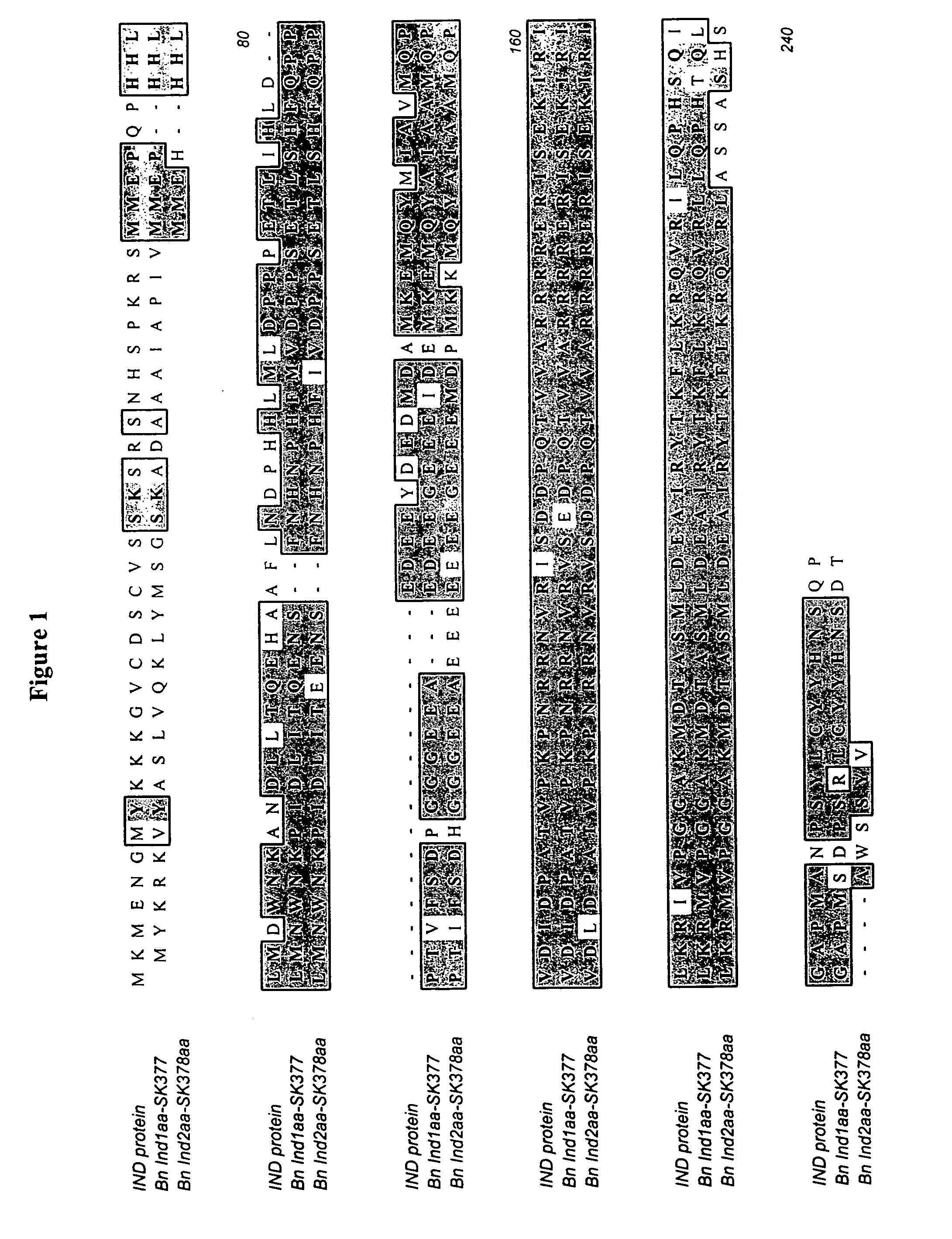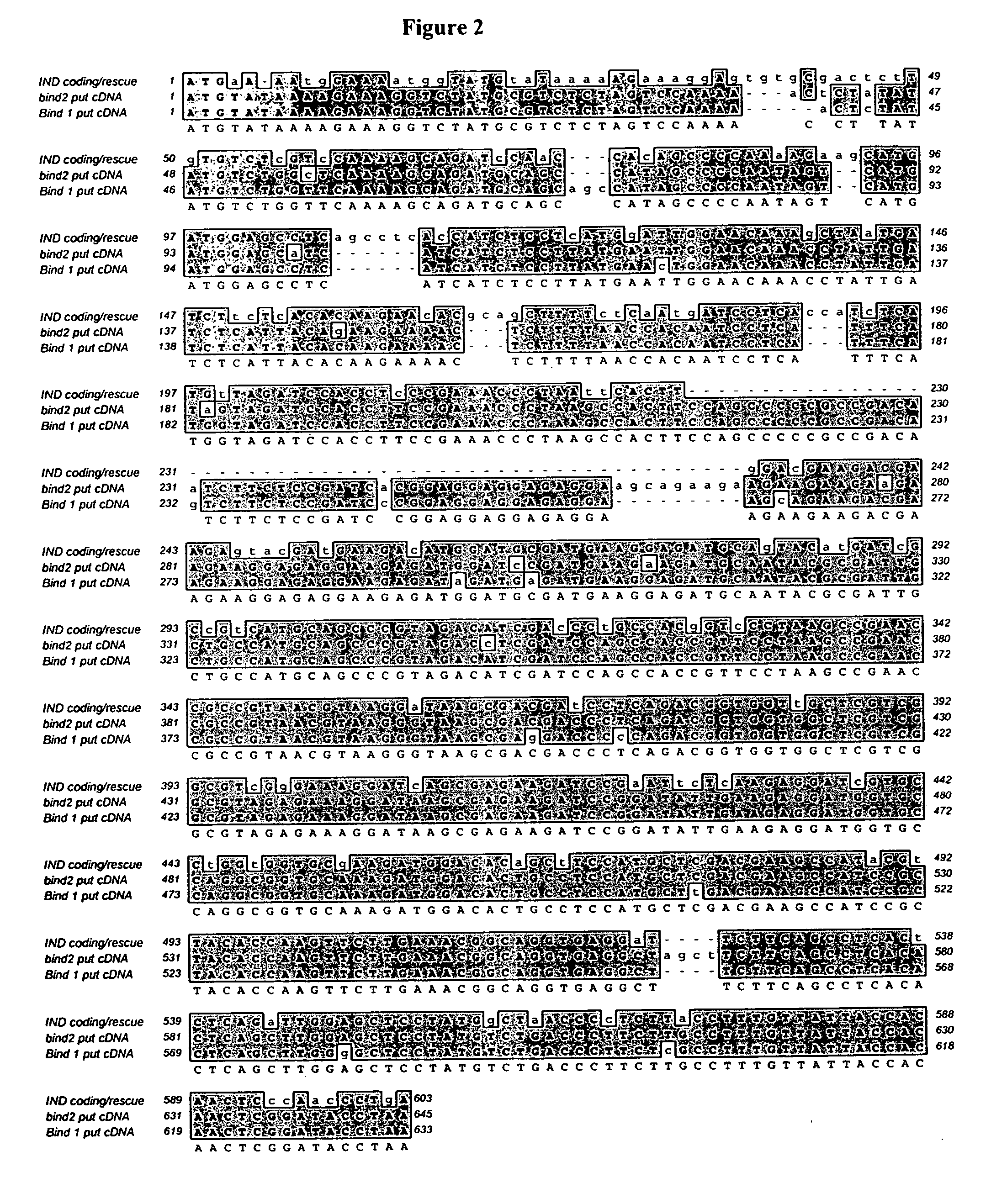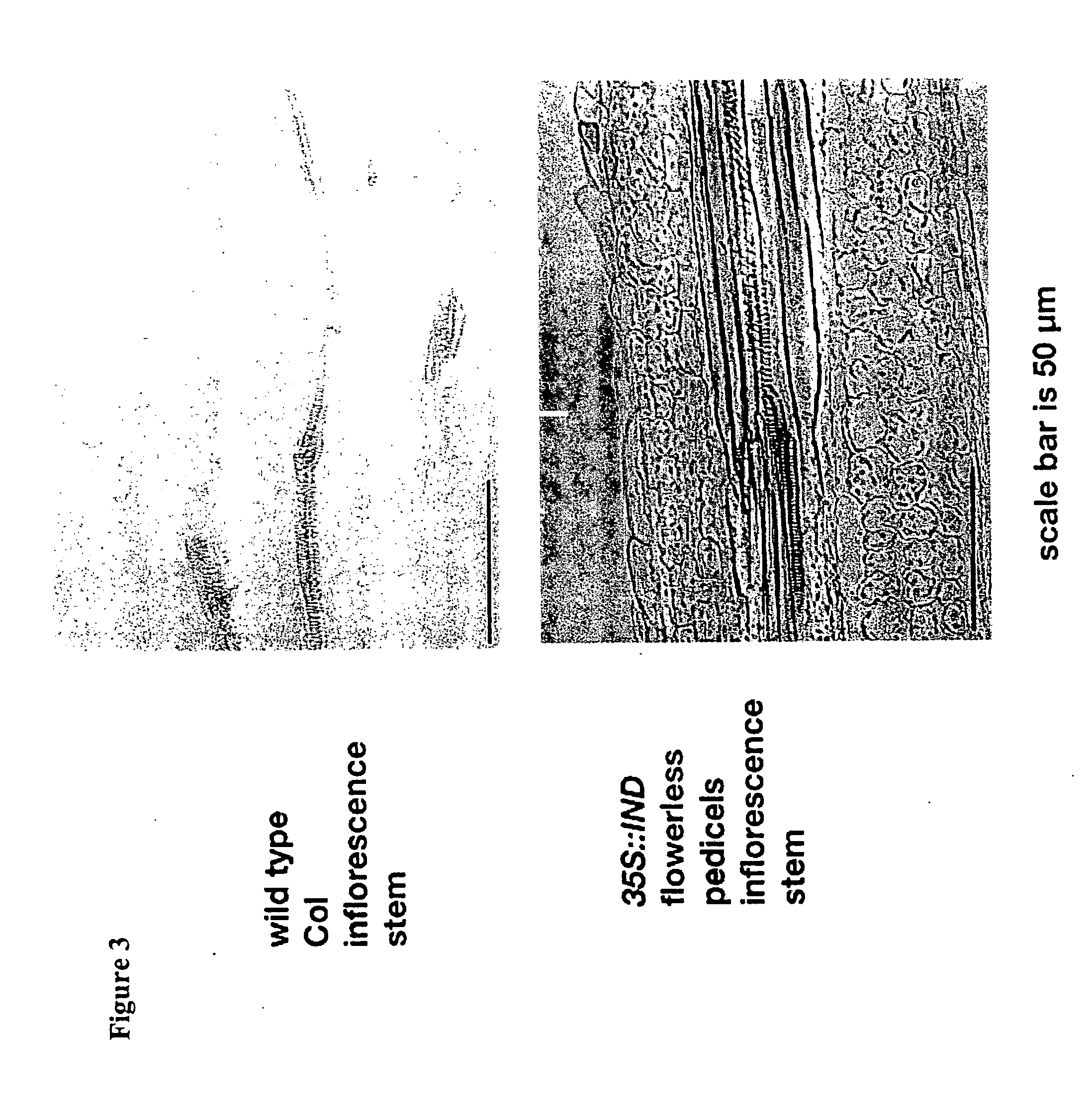Control of fruit dehiscence in plants by indehiscent1 genes
a technology of indehiscent1 and plant, applied in the direction of biochemistry apparatus and processes, microorganisms, peptide sources, etc., can solve the problems of loss of income to the industry, greater than 50% loss of seed yield, and limited seed yield of rapeseed and related plants
- Summary
- Abstract
- Description
- Claims
- Application Information
AI Technical Summary
Benefits of technology
Problems solved by technology
Method used
Image
Examples
example 1
[0137] The GT140 valve margin marker (Sundaresan, V., et al. Genes Dev. 9, 1797-1810 (1995)) is expressed at the valve margin of the developing gynoecium just prior to fertilization (stage 13) and this pattern persists in the mature fruit (stage 17). As expression of this marker is largely absent from the valve margins of shp1 shp2 indehiscent fruits (Liljegren, S. J., et al. Nature, 404(6779):766-70 (2000)), it was expected that the gene corresponding to this marker might also be involved in valve margin development and be required for fruit dehiscence.
[0138] To isolate flanking genomic sequence from the GT140 marker insertion site, TAIL / PCR was performed as previously described (Tsugeki, R., et al. Plant J. 10, 479-489 (1996)). Subsequent sequencing of the isolated PCR products demonstrated that they correspond to a fully sequenced BAC from chromosome 4, available in the public database as part of the Arabidopsis Genome Initiative. The GT140 insertion is located between two genes...
example 2
[0175] Two IND1 orthologs were isolated from Brassica napus plants. Since Brassica napus has an allotetraploid genome, it is not surprising that two different IND1 orthologs are present in the genome. The two sequences are designated Bn IND1 and Bn IND2. An alignment of the amino acid sequences of Bn IND1 and Bn IND2 with SEQ ID NO:2 are depicted in FIG. 1. An alignment of the nucleotide sequences of Bn IND1 and Bn IND2 with SEQ ID NO:1 are depicted in FIG. 2. The amino acid sequence of Bn IND1 is approximately 63% identical to SEQ ID NO:2 of the present invention, as measured with BLAST without the low complexity filter. The amino acid sequence of Bn IND2 is approximately 67% identical to SEQ ID NO:2 of the present invention. Like the Arabidopsis IND1 sequence, the Brassica IND sequences include an alanine residue (A) at site 9 of the basic region instead of the glutamic acid (e.g., position 140 of SEQ ID NO:9 and position 112 of SEQ ID NO: 10).
[0176] Transformation of either Bn I...
example 3
[0177] To examine the effect of ectopic expression of IND1 on lignification, we introduced a 35S::IND1 construct into Arabidopsis plants and assayed for lignification. Upon germination, Arabidopsis plants produce a rosette of leaves on the surface of the soil. These leaves are closely spaced as a result of the lack of internode elongation between leaves. Upon the transition to reproductive development in Arabidopsis, the main stem is often referred to as the inflorescence stem, since it is responsible for producing flowers on its flanks. This stem elongates considerably, giving the plant its characteristic height. Inspection of the lignification patterns in the inflorescence stem of wild-type plants, determined by the lignin-specific phloroglucinol stain of a stem section, revealed the normal pattern of stem lignification in the tracheary elements. A similar stem section from 35S::IND1 plant stems appeared to reveal ectopic lignification. These results are depicted in FIG. 3. The tw...
PUM
 Login to View More
Login to View More Abstract
Description
Claims
Application Information
 Login to View More
Login to View More - R&D
- Intellectual Property
- Life Sciences
- Materials
- Tech Scout
- Unparalleled Data Quality
- Higher Quality Content
- 60% Fewer Hallucinations
Browse by: Latest US Patents, China's latest patents, Technical Efficacy Thesaurus, Application Domain, Technology Topic, Popular Technical Reports.
© 2025 PatSnap. All rights reserved.Legal|Privacy policy|Modern Slavery Act Transparency Statement|Sitemap|About US| Contact US: help@patsnap.com



